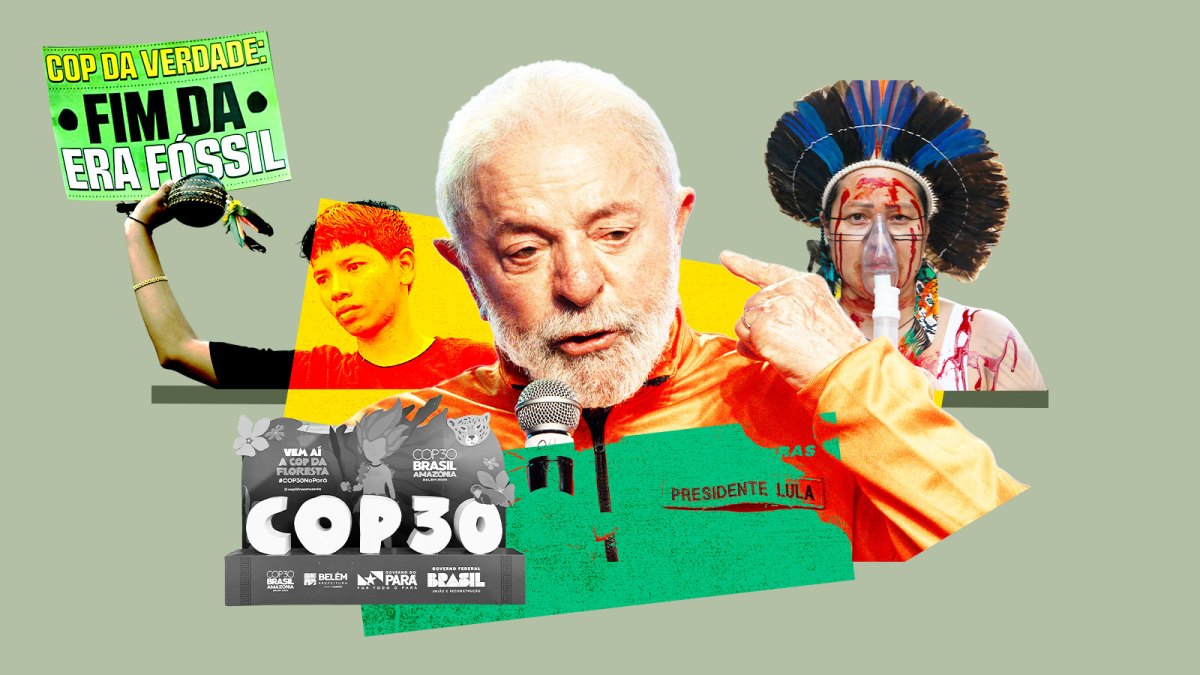World
Brazil’s Lula Opens Indigenous Territory to Oil Drilling Amid COP30

Brazil’s President Luiz Inácio Lula da Silva has approved oil drilling in indigenous territories, a decision that has raised concerns among environmentalists and indigenous groups. This move, announced during the ongoing COP30 conference in December 2023, marks a significant shift from the previous administration’s policies aimed at protecting the Amazon.
The indigenous territory in question, which remained untouched even during the presidency of Jair Bolsonaro, will now be opened to oil exploration. This change has drawn criticism from various environmental organizations that had hoped Lula, known for his previous environmental initiatives, would prioritize the preservation of the Amazon rainforest.
Controversy Surrounding Oil Exploration
The National Petroleum Agency (ANP) revealed plans to auction oil drilling rights in several indigenous areas, including regions that are vital for the preservation of biodiversity. Critics argue that this decision contradicts Lula’s commitment to environmental sustainability and could lead to further deforestation and damage to sensitive ecosystems.
Indigenous leaders have expressed outrage, stating that allowing oil drilling in their territories violates their rights and threatens their way of life. Many had anticipated that Lula would reverse the policies of his predecessor, who they labeled as an “environmental criminal” due to his lax regulations on deforestation and exploitation of natural resources.
The Brazilian government has defended the decision, citing the need for economic development and energy security. Officials argue that oil exploration can provide necessary revenue and job opportunities for local communities. However, many remain skeptical about the potential benefits, fearing that the environmental costs will outweigh any economic gains.
Global Implications and Reactions
The approval of oil drilling in these areas has sparked international outrage, particularly given the timing during COP30, where global leaders gather to discuss climate change and environmental protection. Activists and representatives from various countries have voiced their concerns, urging Brazil to reconsider its stance on indigenous rights and environmental conservation.
As the world watches, the implications of this decision extend beyond Brazil’s borders. The Amazon rainforest, often referred to as the “lungs of the Earth,” plays a crucial role in combating climate change by absorbing carbon dioxide and producing oxygen. Increased oil drilling could undermine these efforts, contributing to higher emissions and accelerating climate change.
In response, environmental NGOs are mobilizing campaigns to pressure the Brazilian government to halt the drilling plans. They emphasize that protecting the Amazon is not only vital for Brazil but for the global community as well.
As the situation develops, the tension between economic interests and environmental protection continues to be a focal point of debate in Brazil. The outcomes of this decision will likely have lasting effects on both the indigenous communities affected and the broader fight against climate change.
-

 Entertainment2 months ago
Entertainment2 months agoAndrew Pierce Confirms Departure from ITV’s Good Morning Britain
-

 Health5 months ago
Health5 months agoFiona Phillips’ Husband Shares Heartfelt Update on Her Alzheimer’s Journey
-

 Health5 months ago
Health5 months agoNeurologist Warns Excessive Use of Supplements Can Harm Brain
-

 Science4 months ago
Science4 months agoBrian Cox Addresses Claims of Alien Probe in 3I/ATLAS Discovery
-

 Entertainment2 months ago
Entertainment2 months agoGogglebox Star Helena Worthington Announces Break After Loss
-

 Science3 months ago
Science3 months agoNASA Investigates Unusual Comet 3I/ATLAS; New Findings Emerge
-

 World2 weeks ago
World2 weeks agoEastEnders Welcomes Back Mark Fowler Jr. with New Actor
-

 Entertainment3 months ago
Entertainment3 months agoTess Daly Honoured with MBE, Announces Departure from Strictly
-

 Entertainment7 months ago
Entertainment7 months agoKerry Katona Discusses Future Baby Plans and Brian McFadden’s Wedding
-

 Science3 months ago
Science3 months agoScientists Examine 3I/ATLAS: Alien Artifact or Cosmic Oddity?
-

 Entertainment4 months ago
Entertainment4 months agoLewis Cope Addresses Accusations of Dance Training Advantage
-

 World3 months ago
World3 months agoBailey and Rebecca Announce Heartbreaking Split After MAFS Reunion









